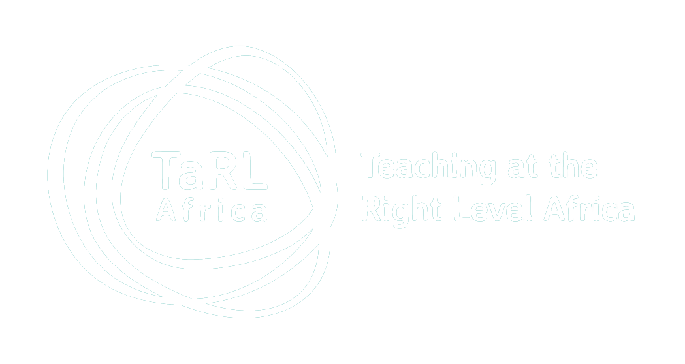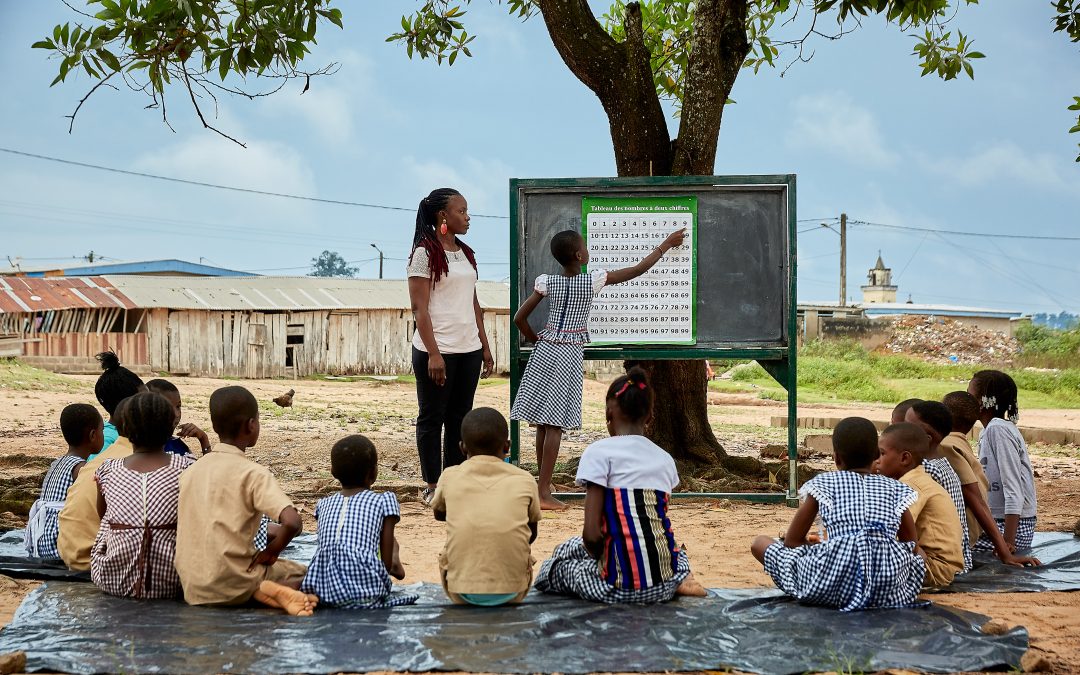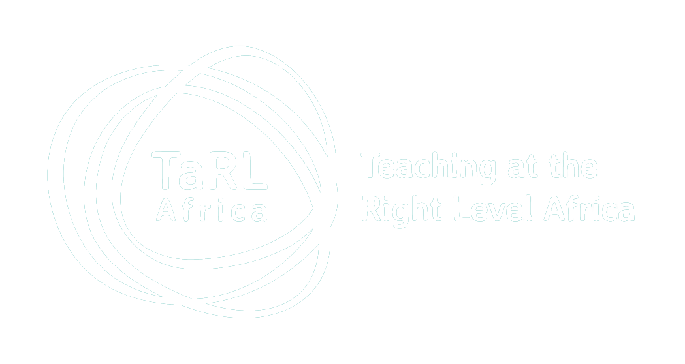Most Sub-Saharan African countries have made tremendous efforts to improve access to education. However, this effort is not commensurate with the increase in learning outcomes. For instance in Côte d’Ivoire, despite mandatory schooling and high enrollment rates, many children do not acquire basic skills in the early years of schooling and are never provided with the opportunity to catch up, resulting in many, if not most, children leaving primary school without foundational reading and mathematics skills. The Programme for the Analysis of Education Systems (PASEC 2019) report shows that 59.5 percent of Ivorian children lack foundational skills in reading while 42.1 percent cannot perform basic mathematics by the time they complete primary education.
According to the Global Partnership for Education, 2019, improving the quality of teaching and learning is central to addressing this learning crisis, but teachers often lack essential skills, tools and support to teach children effectively. Additionally research suggests that the value added by effective teaching predicts key life outcomes such as delaying early pregnancies, improving college attendance, and labor market earnings for children long after they have left a teacher’s classroom.
Teaching at the Right Level (TaRL) as an accelerating teaching method
Teaching at the Right Level (TaRL) is an example of a proven high-impact, scalable, and cost-effective intervention that helps learners to acquire foundational skills in literacy and numeracy. TaRL zeroes in on classroom practices, enabling and motivating teachers to ensure all students attain basic literacy and numeracy skills. TaRL assesses children using a simple testing tool at the classroom level and then groups them according to their learning level rather than their age or grade, creating an environment where level-appropriate content is quickly learned. For a period of the day, children in middle-upper primary focus on foundational skills using a specific accelerated learning methodology, providing children with an opportunity to catch up. Recently the Global Education Evidence Advisory Panel identified the TaRL approach as a “good buy” in their advice on cost-effective approaches to improving global learning. When TaRL is implemented within government systems, teachers receive strong academic support through government mentors. Ongoing onsite monitoring, support, and reviews at different school system levels contribute to the programme’s effectiveness.
The potential of TaRL in addressing the learning challenge
A series of Randomized Control Trials (RCTs) conducted in India have shown that teachers can effectively improve children’s learning outcomes using the TaRL approach during the normal school day if they receive supportive mentoring.
Following the success of TaRL in India, governments in three countries supported by the Global Partnership for Education (GPE) which include Zambia, Côte d’Ivoire, and Nigeria are now expanding and scaling up the innovation. However, building mentoring and monitoring systems effectively into government systems is expensive, difficult, and requires significant local adaptations and testing. Significant research and adaptation is needed to better understand how these mentoring systems work and how they can be leveraged efficiently and effectively in the African context.
Exploratory research on teacher mentoring needs in Côte d’Ivoire
In Côte d’Ivoire, TaRL is being implemented by the government as the Programme d’Enseignement Ciblé (PEC). From a pilot in 50 schools in 2018, the program is currently run in 1000 schools, and the government plans to scale it up further. Through a research partnership funded by the GPE KIX, TaRL Africa and J-PAL support the government on their pathway to scale by unpacking possible innovations in teacher mentoring. As part of the research agenda, an initial exploratory exercise was conducted in 2021, with a qualitative survey and an observational study on the programme. The research aimed to understand teacher mentoring needs, classroom management as well as other school-level program support needs.
What did we do?
For the qualitative survey, a sample of 44 schools were selected. Directors and two teachers were interviewed in each school, for a total of 144 respondents. For the observation study, eight schools were sampled. Both samples were selected using stratified sampling to ensure representation along three dimensions: proximity to the pedagogical advisors who serve as a mentor for PEC, the initial level of low learners in school, and rural and urban area status. For the observation study, two enumerators spent six days in each school, observing each teacher that serves as a PEC facilitator over four sessions, including the one mentored by the school director and the other mentored by a Pedagogical Advisor (PA). Overall, a total of 94 sessions were observed.
What did we find out?
Results from the exploration exercise show that schools are implementing the PEC programme to varying degrees and that the quality of implementation varies with how actively principals and PAs are involved in mentorship and coordination of activities. Most specifically, we found that in schools where principals are proactive in mentoring and coordinating teaching and learning activities, teachers were highly motivated and the quality of PEC implementation was high. However, principals often lack the time to effectively perform their role as mentors due to other competing responsibilities that pertain to school administration.
Both facilitators and mentors appreciated the PEC methodology. They particularly appreciate the test used to group children which, they report, helps them know the true learning level of their students. Teachers said that the syllable chart is useful for French classes, especially since normal teaching in the grades targeted by PEC emphasizes word recognition instead of reading syllable by syllable as done in early grades (a transition from the syllabic to the global method of learning how to read). There were also anecdotal reports by teachers that they use other PEC materials during their normal instruction class.
Teacher weekly meetings, an activity designed as a tool that principals can use to mentor teachers in their school, seem to be an underutilized resource. Although the meetings touch on important aspects of the PEC methodology, there is little evidence that concrete actions follow these discussions. For example, although progression of students is discussed in most of the meetings, only one school out of the eight has a mechanism in place to move students who have progressed in their learning levels.
When it comes to teacher mentoring by PAs, the results show that even though PAs visit schools less frequently than expected (only about once a term on average), they provide valuable feedback to teachers in terms of teaching methodology and lesson content on these visits. Subsequently, teachers are able to integrate this feedback to improve their teaching.
On specific mentoring needs, the study shows that teachers are struggling with some aspects of the PEC methodology including session planning, the choice of activities, and classroom facilitation. Teachers rarely do lesson plans and the quality of PEC lessons is affected because sessions without a lesson plan are usually poorly conducted. The results also show that teachers tend to repeat activities that they are most proficient at. Additionally, teachers rarely conduct small group activities which are important to help students master the content taught. Activities in small groups happen only 5 percent of the time whereas activities with large groups happen only between 10 to 17 percent of the time.
What next?
Overall, the qualitative and exploratory studies have helped to identify the challenges that teachers face which mentoring could address, including directors’ availability and involvement, lack of regular visits by the PAs and content specific challenges. These findings are being discussed internally to inform the development of innovations in the program that will be piloted and eventually tested through rigorous evaluations.


